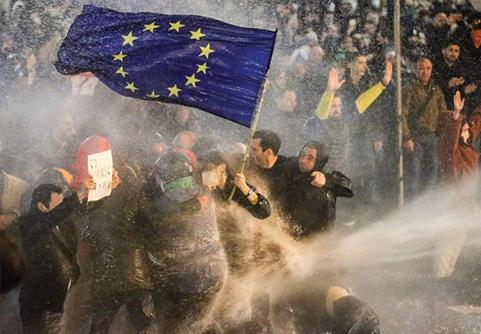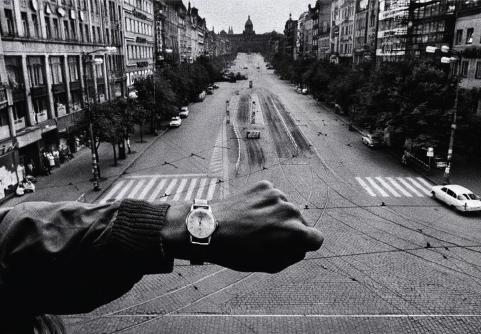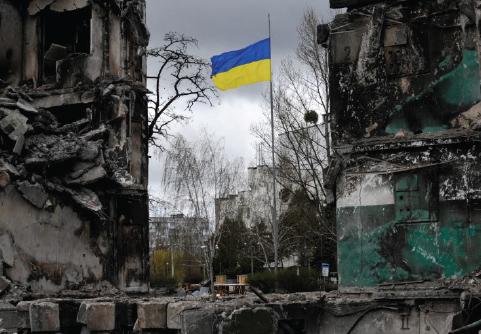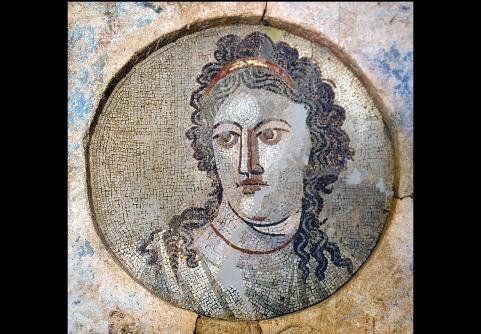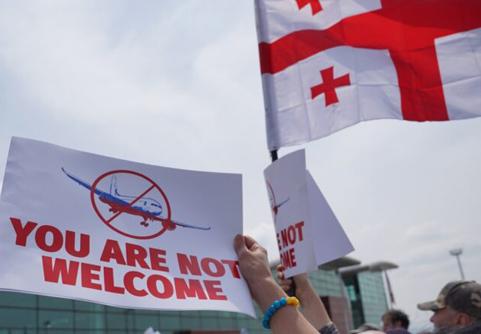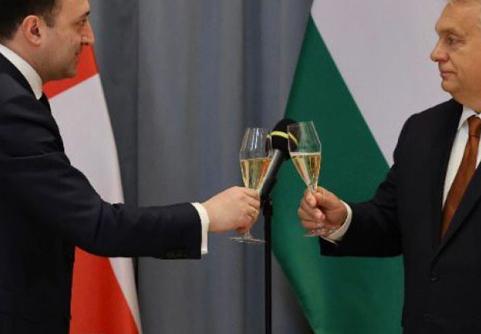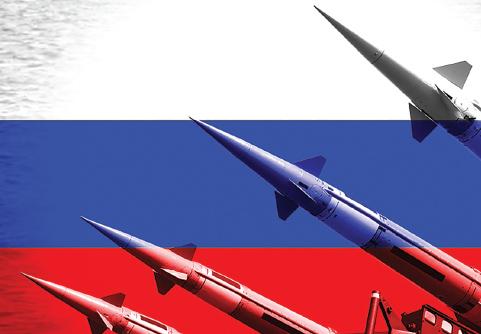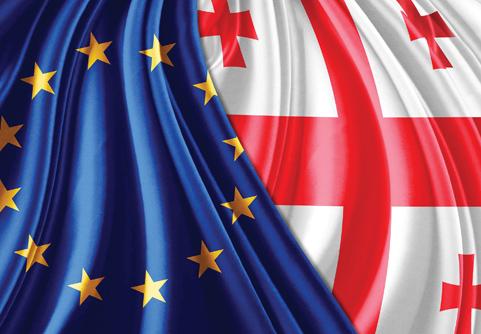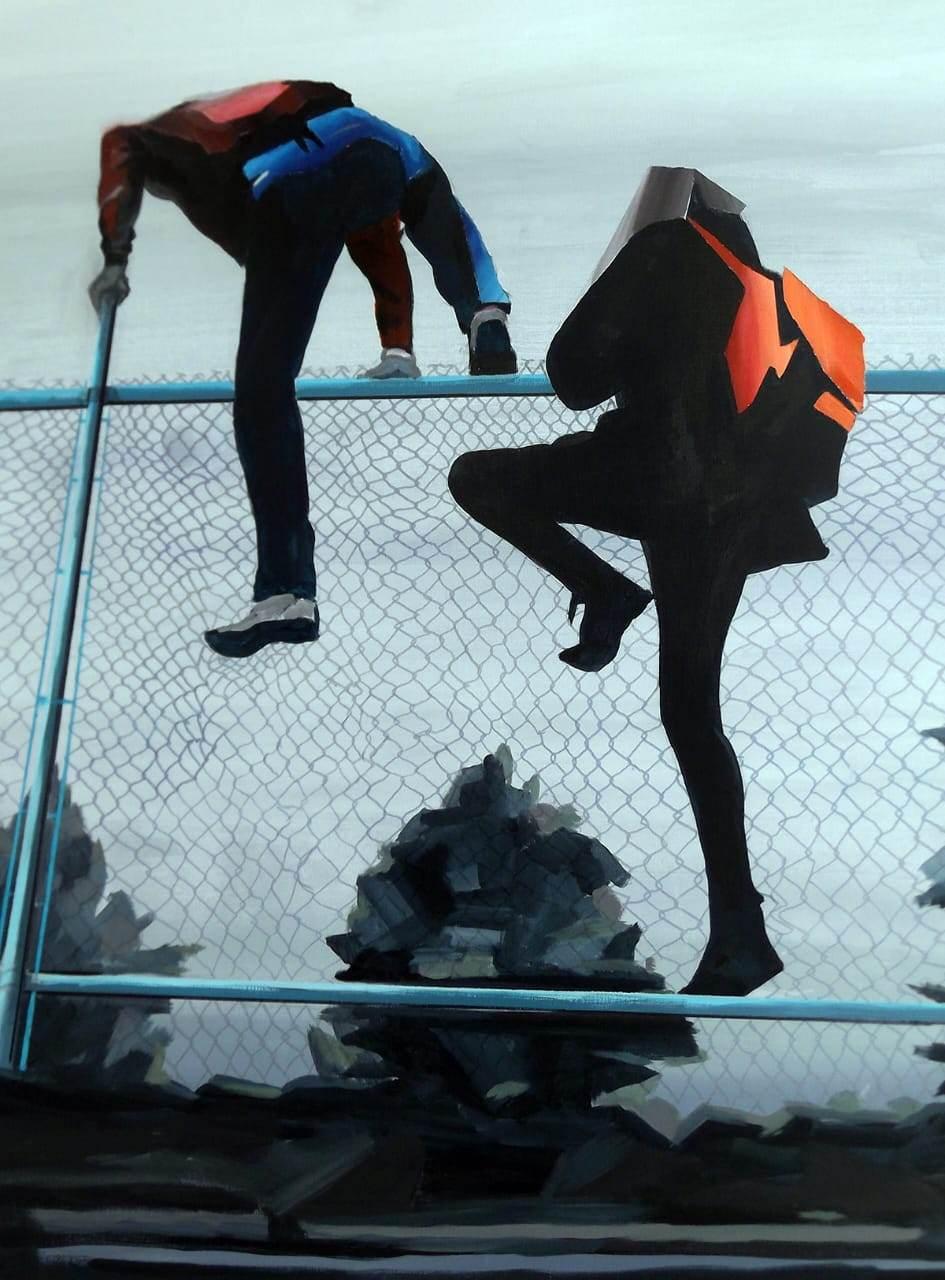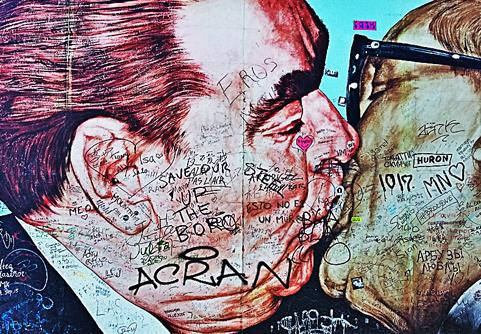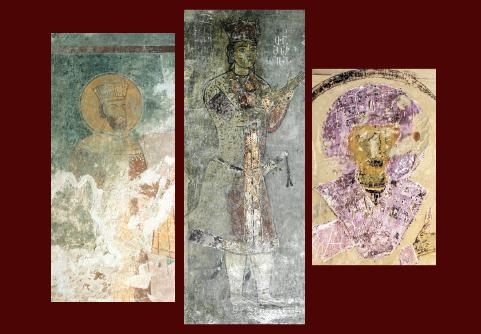
Author : David Kutidze
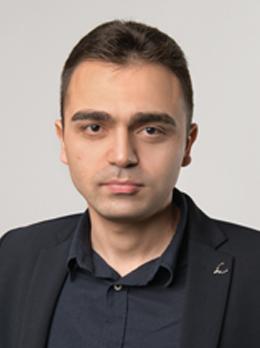
Georgia exists in a reality in which one neighbouring state commits brutal crimes against it and other countries: killing civilians, seizing territories, trying to destroy the aspirations of free societies to prosperity and turn them into a space of its influence. However, to cover up its own evil, it denies the accusations against it and attributes them to the stupidity of others, blames other countries and in general tries to present such behaviour as “liberation of the people”. Moreover, over the years it has purposefully refined the ways of deceiving the public to present to us the black colour as white and to make itself known as a desirable ally. It is not difficult to realise that this state is the Russian Federation, and that the refined strategy of passing off black as white is its propaganda.
According to propaganda researchers, the Russian Federation uses information, culture, and money as weapons for killing reasoned debate in a society. The effect of Russian propaganda is not to convince anyone or gain credibility, but to sow confusion and spread lies through conspiracy theories. Using information as a weapon is a vital part of modern Russian hybrid warfare. Gleb Pavlovsky, a political consultant who once worked on Putin’s election campaign, says: “The main difference between the Soviet Union’s propaganda and that of today’s Russia is that in the Soviet period the concept of truth was important. Even if they lied, they tried to prove that what they were doing was ‘the truth’. Nowadays, nobody is trying to prove the ‘truth’. You can just say anything, create reality.”
This is how Russian propaganda works: The main thing is to accuse someone, completely unfounded, without taking responsibility, and the job is done. And when the question arises, where is the proof of the accusation, the answer is: there is none, but does that mean that my accusation does not correspond to reality?
Russian propaganda creates and spreads absurd myths on the assumption that if a lie is repeated often enough and systematically enough, it will eventually be widely accepted as the truth. Russia uses many different methods to spread its false stories, but most of them have one thing in common: they are based on negativity – the unsubstantiated denigration and discreditation of the opposing side. Another reason for the ease with which Russian propaganda spreads is that those who spread it give little thought to the consistency of the messages and act only based on need. In such times, it is possible to prove one thing today and the exact opposite the next day. In the flow of information, old information is lost so quickly that the propagandist is not afraid to take a fundamentally different new position.
Moreover, as we have said, Russian propaganda does not even try to prove its truth and its aim is to sow fear and confusion with conspiracy theories. It also does not leave out a single space or topic that the target audience can agree on. The tried and tested methods of Russian propaganda can be found in the rhetoric of the Georgian government, and this trend is becoming more visible every day. So, unfortunately, we must consider the public communication of the Georgian government and the propaganda of the occupying country in the same context.
One of the most common and simple methods of propaganda is labelling. It involves the fitting of a mostly negative label on a person, group, or idea. The purpose of this method of propaganda is that the recipient of the information does not investigate the facts behind the label, i.e. emotions overshadow reasoning based on facts. Thus, this technique is based on manipulating the emotions of the audience and provoking hasty, superficial conclusions based on them. Russian propaganda often uses this technique. The most recent and obvious example of this is related to the war unleashed by Putin’s Russia against Ukraine. Before it launched the war and afterwards, the Russian government with its propaganda channels labelled the legally elected government of Ukraine as Nazis/neo-Nazis and fascists. Here we can recall another absurd label, “gang of drug addicts”, which Putin himself repeatedly used against Volodymyr Zelenskyy and his government.
The war launched by Putin’s Russia against Ukraine in 2022 has revealed many hidden and obscure tendencies. Among them is the similarity of the Georgian Dream rhetoric with Russian propaganda, particularly the use of negative labels against opponents. With the outbreak of the war, it seemed to opponents of the government and part of the public that the Georgian government’s positioning on the international arena in terms of support for Ukraine, especially the rhetorical part, was insufficient. Among other things, this is one of the main reasons for the aggravation of relations between the governments of Georgia and Ukraine. And this is happening against the background of the fact that the rhetoric and behaviour of the Georgian government is becoming increasingly acceptable to the Russian Federation. In order to cover up this very detrimental trend for our country, the label “war party” appeared in the statements of the representatives of the Georgian Dream, which was used first against the National Movement and then, in fact, against all those who criticised the position of the Georgian government during the Russian-Ukrainian War. In other words, according to the Georgian Dream propaganda, anyone who believes that Georgia, occupied by Russia, should do more to support Ukraine, “wants war”.
Another way of propaganda is to blame the accuser. The logic behind this is that the best defence is an attack. This process often involves absurd lies and conspiracy theories, which is called unbridled propaganda. This method is well known and has been repeatedly used by Russian propaganda, especially in crisis situations. An example of unbridled propaganda is when Russia blames its brutality against Ukrainian citizens on the Ukrainian army. A similar method was used by Russian propaganda to deny the inhumane crimes committed by its own army in Bucha, Ukraine.
The Georgian government also uses similar tactics in crisis situations. One can recall the events of 5-6 July (when dozens of journalists were physically attacked and the government was unable or did not protect them), about which the government representatives stated that while violence against journalists is unacceptable, journalists often insult the public, but psychologically. Thus, in such situations where the government’s responsibility is also revealed, the government prefers not to neutralise the accusations with appropriate arguments, but to attack critical opinion with propaganda messages.
Closely related to the above method is the propaganda technique of criticism in response to criticism, which instead of answering difficult questions either puts forward counter-accusations or shifts the focus to another issue, thus trying to divert attention from the object of criticism and/or justify this object with false comparisons and manipulative moral reasoning. This tactic was widely used by the Soviet Union when any criticism was met by pointing to the problems of the West. This approach is also relevant in contemporary Russia. The Russian Federation, which lags far behind the West in terms of economy, technology, standard of living and welfare, is constantly trying to discredit Europe and the United States with various disinformation messages.
This is another vivid example of Russia’s characteristic negative propaganda, which instils the following idea: “Everything may not be good in Russia, but it is even worse in the West”. Many examples of this approach can be found in the public communication of the Georgian government, when instead of responding to current challenges it reminds us of the vices of the previous government. While commenting on poverty in the country, rising prices for essential foodstuffs, problems with justice and other critical issues, Georgian Dream again and again keeps reminding us of what was happening before 2012.
As we mentioned above, one of the reasons for the easy spread of Russian propaganda is that it often makes us believe mutually contradictory messages. The communication with the population of the incumbent Georgian government (especially with its own voters) in the pre-election and post-election periods is clearly similar to this approach. Since 2013, the Georgian Dream has been declaring that its main opponent, the National Movement, is finished and its influence as an opposition party is minimal. However, before each new election, the Georgian Dream’s entire campaign is based on how dangerous the return of the National Movement to power is. As a result, a space is created in which the end of the National Movement is more important than the future intentions and prospects of development. Over the years, other opposition parties, media outlets, etc., that are undesirable to the authorities are gradually added to a list of those to be eliminated.
Now let’s get to the main point and talk about an extremely vicious campaign that essentially combines all of the above methods: The well-known false dilemma of “engaging in war”, through which the Georgian government has reached the point of trying to portray the foe as the friend and the friend as the foe. Since Georgia (unlike Ukraine and Moldova) has failed to obtain EU Candidate Status, the Georgian Dream authorities have been looking for culprits everywhere but themselves. They want us to believe that the failure to obtain the status is not the fault of an unfair judiciary, inadequate quality of democracy, or informal governance, but a kind of punishment from the West for Georgia’s failure to join the war against Russia.
A clear example of this is the numerous statements or indirect hints that “certain forces want to drag Georgia into war”. And this absurd theory, aimed at evading the responsibility of the ruling party and presenting it as a “defender of peace”, is based on the beginning to the end on the fear of war. Fear of war is absolutely natural for the citizens of Georgia, because we remember well first the 90s and then 2008.
Therefore, similar to Russian propaganda, the goal of this campaign is to incite our fear in such a way that we lose the ability to judge and not question the arguments supporting this theory, since there are none. Besides, the supporters of this theory for some reason rarely or not at all mention the country that first forcibly dragged us into the USSR, then organised April 9, took away our territories, attacked us again in 2008 and has most part of Georgia occupied until now. The authors of this campaign probably do not want us to take a closer look at our history and realise that if anyone dragged Georgia into war, it was Russia.
This is a simple truth about which the great Georgian historian and public figure Ivane Javakhishvili wrote in 1919. Javakhishvili begins his work “Relations between Russia and Georgia in the 18th Century” as follows “After the restoration of independence, every citizen of the Republic of Georgia is obliged to know the past of his country”. Based on relevant facts, he repeatedly exposes the “Christian state” (you have probably already guessed which country this ironic phrase refers to), which at various times involved Georgian kings in a war against Persia or the Ottomans and then left them alone against countless enemies.
In conclusion, when we hear the rhetoric of the current Georgian authorities, which is saturated with typical elements of Russian propaganda – extremely negative labels against opponents instead of a reasoned response to criticism, counter-accusations devoid of content, contradictory messages, and ridiculous dilemmas – we should be particularly attentive and careful not to fall under the influence of malicious propaganda and false fear (the purpose of which is to make us forget the real enemy and present a friend as an enemy).
